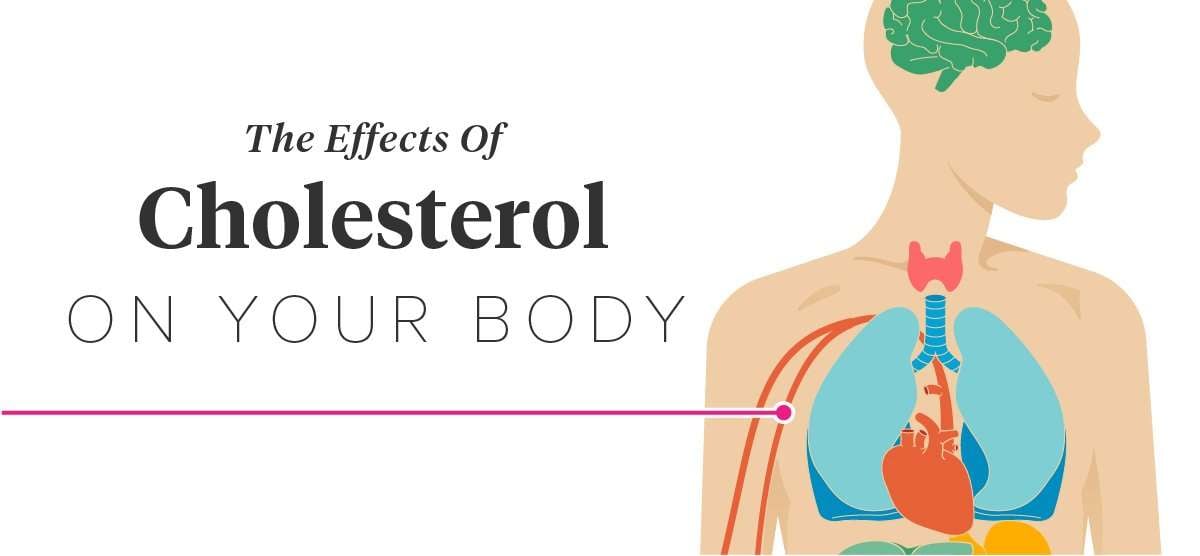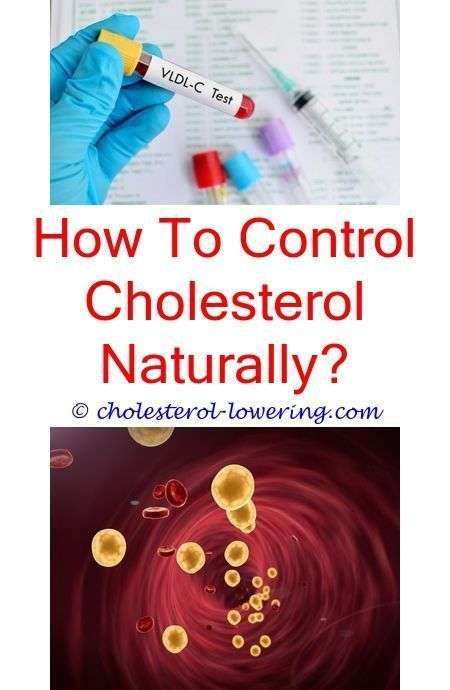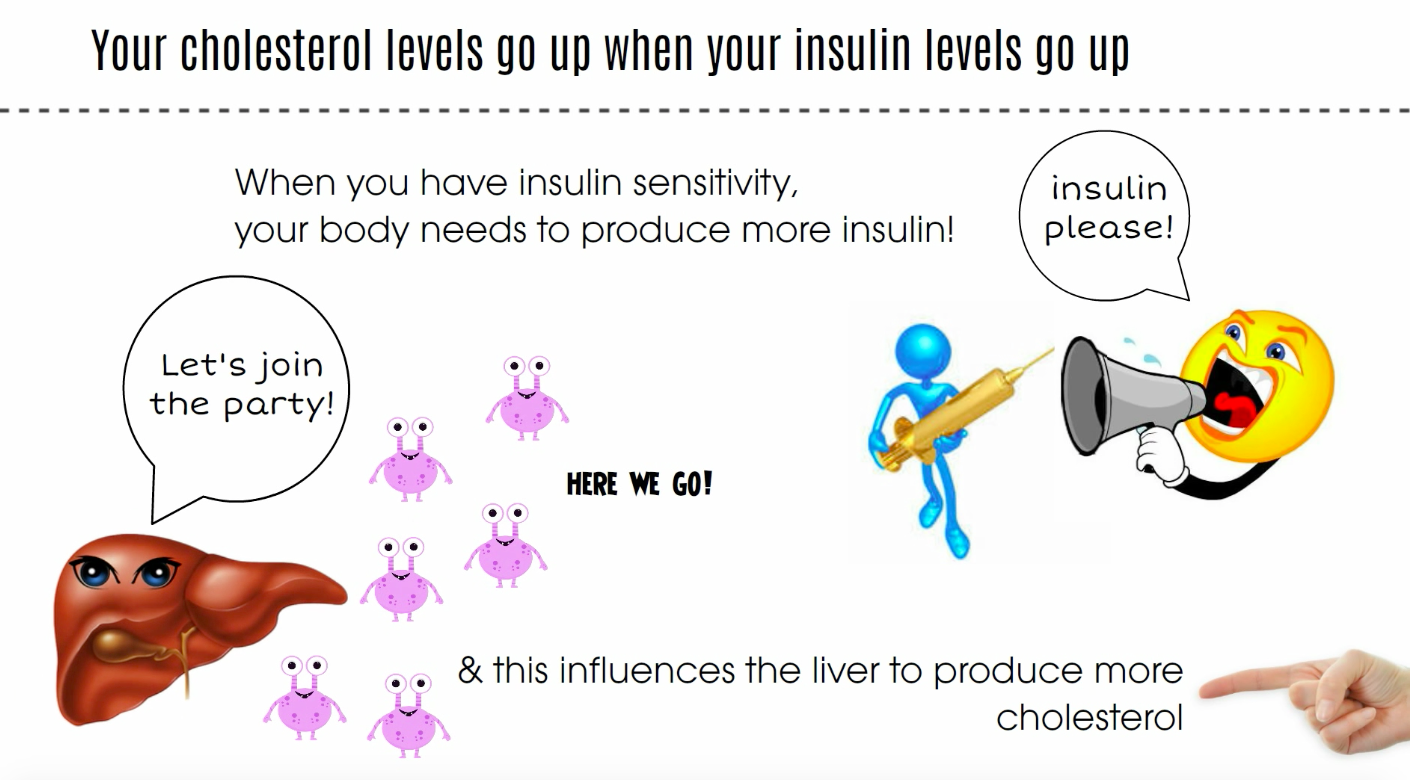Factors That Affect Cholesterol Levels In The Body
Many factors can have a serious impact on the cholesterol levels in the body. To control these levels, having a proper and well-maintained diet is the most important thing on the priority list. Cholesterol and the saturated fat available in the food you consume increases the cholesterol levels in your blood. The prime factor is the saturated fat however, you cannot undermine the importance of the cholesterol contents available in your food. You must consume foods that contain a reduced amount of saturated fat and cholesterol to decrease the blood cholesterol level. You can also refer a cholesterol level chart to keep track of your blood cholesterol.
In a cholesterol level chart, you would find the various levels which would help you decide in which section the cholesterol level falls. The following points are essential as they contribute to knowing the factors that affect the cholesterol levels in the body.
Body weight is an indicator of your cholesterol levelsWhen your blood cholesterol levels rise, you become very susceptible to heart diseases. As per the cholesterol level chart, weight is an important risk factor for heart ailments. When ones weight increases, the cholesterol level also increases. However, when one starts to lose weight, they can reduce the level of LDL cholesterol. It also helps reduce the triglyceride levels and optimize the HDL cholesterol levels.
How Often Should I Get A Cholesterol Test
When and how often you should get a cholesterol test depends on your age, risk factors, and family history. The general recommendations are:
For people who are age 19 or younger::
- The first test should be between ages 9 to 11
- Children should have the test again every 5 years
- Some children may have this test starting at age 2 if there is a family history of high blood cholesterol, heart attack, or stroke
For people who are age 20 or older::
- Younger adults should have the test every 5 years
- Men ages 45 to 65 and women ages 55 to 65 should have it every 1 to 2 years
How To Lower High Ldl Cholesterol
Your doctor will set up a plan of lifestyle changes and/or medication that can lower your cholesterol levels and your overall odds of a heart problem. Your plan might include:
- A healthy diet. Try not to eat things that are high in saturated fat, cholesterol, or simple carbs such as sugar and white flour. Eat more fiber and plant sterols such as margarine or nuts.
- Regular exercise. The kind that gets your heart pumping is best.
- Weight loss. Losing even 5 to 10 pounds can improve your cholesterol levels.
- Quitting tobacco. If you have a hard time giving up smoking, your doctor can help you find the program thatâs best for you.
- Medication. Some drugs, like statins, help keep your body from making cholesterol. Another, ezetimibe , lowers the amount of cholesterol your body gets from food you eat. If you canât take statins or have a severe form of high cholesterol, you might get shots of PCSK9 inhibitors. These meds help your liver remove more LDL from your blood.
Show Sources
Don’t Miss: Pork Chop Cholesterol
Causes Of High Cholesterol
Eating too many foods that are high in cholesterol, saturated fats, and trans fats may increase your risk of developing high cholesterol. Living with obesity can also increase your risk. Other lifestyle factors that can contribute to high cholesterol include inactivity and smoking.
Your genetics can also affect your chances of developing high cholesterol. Genes are passed down from parents to children. Certain genes instruct your body on how to process cholesterol and fats. If your parents have high cholesterol, you may be at a greater risk of having it too.
In rare cases, high cholesterol is caused by familial hypercholesterolemia. This genetic disorder prevents your body from removing LDL. According to the National Human Genome Research Institute , most adults with this condition have total cholesterol levels above 300 milligrams per deciliter and LDL levels above 200 milligrams per deciliter.
Other health conditions, such as diabetes and hypothyroidism, may also increase your risk of developing high cholesterol and related complications.
Living With High Cholesterol

If you have high cholesterol, you are twice as likely to develop heart disease. That is why it is important to have your cholesterol levels checked, especially if you have a family history of heart disease. Reducing your LDL bad cholesterol through good diet, exercise, and medicine can make a positive impact on your overall health.
Don’t Miss: Does Shellfish Have High Cholesterol
How Cholesterol Levels Are Measured
You may not feel any symptoms of high cholesterol until you develop more serious health problems. This is why it is important to have your cholesterol levels measured on a regular basis.
A blood test called a lipid or lipoprotein panel will show your cholesterol levels and help your healthcare provider decide if you need treatment.
The blood test measures:
- Total cholesterol:The total amount of cholesterol in your blood, including HDL and LDL
- High-density lipoprotein, or HDL: It is called “good” cholesterol and is capable of removing cholesterol from your body by moving it to the liver.
- Low-density lipoprotein, or LDL: It is called “bad” cholesterol and can cause plaque buildup.
- Non-HDL cholesterol: It is found by subtracting HDL from total cholesterol. It includes LDL and VLDL .
- Triglycerides: A type of fat that can also increase the risk of cardiovascular disease
Treatment For High Cholesterol
Making lifestyle changes, especially changing some of the foods you eat, and regular physical activity, are very important to help reduce high LDL cholesterol.
You may also need to take cholesterol-lowering medicines to help manage your cholesterol and reduce your risk of having a heart attack or stroke. Talk to your doctor about finding the most appropriate treatment for you.
Read Also: Beer Increases Cholesterol
How Is Cholesterol Measured
Most people with high cholesterol feel perfectly well and often have no symptoms. The best way to find out if your cholesterol is high is to have a blood test .
Visit your GP to determine whether you need to lower your cholesterol level and what action to take.
GPs can also do a heart health check, that calculates your heart disease and stroke risk.
Make The Changes Worth Making
If you have high blood cholesterol, making lifestyle changes is a great first step to lower your risk of heart disease. If those steps dont reduce your risk enough, your doctor may prescribe medications to help.
Remember: Making even modest changes now can help to prevent significant medical issues later. Do all you can to reduce your risk for the serious effects of heart attack and stroke.
Recommended Reading: Do Egg Beaters Have Cholesterol
Hdl Cholesterol Or Good Cholesterol
HDL cholesterol is sometimes called good cholesterol. It helps return LDL cholesterol to your liver to be removed from your body. This helps prevent cholesterol plaque from building up in your arteries.
When you have healthy levels of HDL cholesterol, it can help lower your risk of blood clots, heart disease, and stroke.
Are High Cholesterol Levels Dangerous
A high cholesterol level can be a risk factor for heart attack and stroke. These devastating events happen when a cholesterol plaque ruptures. This causes blood to suddenly clot and block an artery in the heart or brain.
Blockages that prevent sufficient blood flow in the coronary arteries can lead to a form of chest pain called angina. Angina is a common symptom of coronary artery disease. Symptoms usually occur with exertion and go away with rest.
Read Also: Cholesterol In Egg Beaters
What Are Normal Levels Of Cholesterol
Normal levels of cholesterol are different depending on your age and sex. These guidelines show desirable total, non-HDL, LDL and HDL levels by age and sex.
Table 1: Target cholesterol levels by age and sex
| Age and sex |
|---|
cholesterol
cholesterol
People aged 19 years and younger Men aged 20 years and olderWomen aged 20 years and older
The table above spells out the numbers for normal cholesterol levels. The table below shows cholesterol levels that are higher than normal. High cholesterol numbers vary by age group and sex and may be different for those who have heart disease. These guidelines represent high cholesterol numbers for those who do not have heart disease.
Table 2: High total, non-HDL and LDL cholesterol levels by age and sex
| Age and sex |
|---|
| People aged 19 years and younger |
Borderline: 170-199 mg/dL
High: Greater than or equal to 200 mg/dL
Borderline: 120-144 mg/dL
High: Greater than or equal to 145 mg/dL
Borderline: 110-129 mg/dL
High: Greater than or equal to 130 mg/dL
High: Greater than or equal to 239 mg/dL
Near optimal or above optimal: 100-129 mg/dL
Borderline high: 130-159 mg/dL
Very high: Greater than 189 mg/dL
High: Greater than or equal to 239 mg/dL
Near optimal or above optimal: 100-129 mg/dL
Borderline high: 130-159 mg/dL
Very high: Greater than 189 mg/dL
LDL cholesterol levels
If you do not have heart disease or blood vessel disease, and you are not at high risk for developing heart disease, the optimal number is less than 100 mg/dL.
Triglycerides
How Can Cholesterol Levels Hurt Your Body

“Too much LDL cholesterol in the body can create problems,” Dr. Kovacich said. “Over the course of time, elevated cholesterol levels can damage the arteries, contribute to heart disease and increase the risk of stroke. It’s a good idea to monitor cholesterol levels during regular doctors visits and, if necessary, try to reduce high levels through diet, exercise and medication. Exercise by itself can raise the good cholesterol levels but cannot lower the bad cholesterol levels.”
Excess LDL, especially in association with other risk factors, such as diabetes, high blood pressure and smoking, can lead to premature development of plaque in arteries throughout the body.
Also Check: Does Shrimp Have Good Or Bad Cholesterol
Where Is Cholesterol Made
Some of our cholesterol comes from the food we eat, but most is made in the liver in a complex 37-step process.
Cholesterol and another type of blood fat called triglycerides cannot circulate loosely in the blood, so the liver packages them into parcels called lipoproteins.
The lipoproteins are then released into the blood and carried around the body to wherever they’re needed.
What Is High Cholesterol
High cholesterol is when there’s too much bad cholesterol and/or not enough good cholesterol in your blood.
This picture shows what it looks like if you have low cholesterol, normal cholesterol and bad cholesterol levels.
Sometimes health professionals talk about the terms dyslipidaemia and hyperlipidaemia. Both are clinical terms that mean your levels of cholesterol are outside the normal range.
Symptoms of high cholesterol
You won’t know if you have high cholesterol because it doesn’t usually have symptoms. The only way to know is to have a blood test.
Why does high cholesterol matter?
When your cholesterol is too high it can build up as plaque in your arteries. If the plaque gets too big, or breaks off, it can cause a heart attack and stroke. This risk also increases when your triglycerides are too high.
Your doctor will use the results of your blood test and your other heart attack risk factors to decide whether you need medication to lower your cholesterol or triglyceride levels.
Recommended Reading: Does Mussels Have Cholesterol
Home Remedies To Lower Cholesterol Naturally
In some cases, you may be able to lower your cholesterol levels without taking medications. For example, it may be enough to eat a nutritious diet, exercise regularly, and avoid smoking tobacco products.
Some people also claim that certain herbal and nutritional supplements may help lower cholesterol levels. For instance, claims have been made about:
- ground flaxseed
However, the level of evidence supporting these claims varies. Also, the Food and Drug Administration hasnt approved any of these products for treating high cholesterol. More research is needed to learn if they can help treat this condition.
Always talk with your doctor before taking any herbal or nutritional supplements. In some cases, they might interact with other medications youre taking.
You cant control the genetic risk factors for high cholesterol. However, lifestyle factors can be managed.
To lower your risk of developing high cholesterol:
- Eat a nutritious diet thats low in cholesterol and animal fats, and high in fiber.
- Avoid excessive alcohol consumption.
- E.xercise regularly.
- Avoid smoking.
Follow your doctors recommendations for routine cholesterol screening. If youre at risk of high cholesterol or coronary heart disease, they will likely encourage you to get your cholesterol levels tested on a regular basis.
Cardiovascular And Circulatory Systems
When you have too much LDL cholesterol in your body it can build up in your arteries, clogging them and making them less flexible. Hardening of the arteries is called atherosclerosis. Blood doesnt flow as well through stiff arteries, so your heart has to work harder to push blood through them. Over time, as plaque builds up in your arteries, you can develop heart disease.
Plaque buildup in coronary arteries can disrupt the flow of oxygen-rich blood to your heart muscle. This may cause chest pain called angina. Angina isnt a heart attack, but it is a temporary disruption of blood flow. Its a warning that youre at risk for a heart attack. A piece of plaque can eventually break off and form a clot or the artery may continue to become narrowed which can fully block blood flow to your heart, leading to a heart attack. If this process occurs in the arteries going to the brain or within the brain it can lead to a stroke.
Plaque can also block the flow of blood to arteries that supply blood to your intestinal tract, legs, and feet. This is called peripheral arterial disease .
Don’t Miss: Why Does Shrimp Have High Cholesterol
Is High Cholesterol Dangerous Risk Factors
High cholesterol is just one of several risk factors for coronary heart disease. A health-care professional will consider a person’s overall risk when assessing their cholesterol levels and discussing treatment options.
Risk factors are conditions that increase a person’s risk for developing heart disease. Some risk factors can be changed and others cannot. In general, the more risk factors a person has, the greater the chance of developing coronary heart disease. Some risk factors can be controlled however, some cannot be controlled.
Risk factors that cannot be controlled include:
- Age
- Family history of early heart disease
Risk factors that can be controlled include:
- High blood cholesterol
- Low HDL cholesterol
How Do Good And Bad Cholesterol Affect The Body
High-density lipoprotein, or HDL, is the good cholesterol. The benefit of HDL lies in the fact that it carries bad cholesterol back to the liver. In doing so, it cleanses cholesterol from the bloodstream.
Low-density lipoprotein, or LDL cholesterol, is the bad cholesterol. The higher the level of LDL cholesterol, the greater your risk of a heart attack. When the level of LDL cholesterol goes up, excess cholesterol can build up and stick to the walls of your arteries. This causes damage. The buildup is called plaque, and the formation of plaque can cause arteries to harden and narrow. This hardening is called atherosclerosis. It’s also known as hardening of the arteries. If a plaque becomes unstable, a blood clot can form, suddenly blocking an artery. This causes a heart attack or stroke.
Recommended Reading: Are Pork Chops High In Cholesterol
What To Know About Cholesterol
Cholesterol is a waxy, fat-like substance in your blood thats produced naturally by your liver.
Cholesterol plays a role in cell creation, hormone production, and food digestion. Your body makes all the cholesterol it needs. However, cholesterol is also found in some foods, and many people get more cholesterol than they need from their diet.
A high-fat diet can increase your risk for high cholesterol, but other factors play a part in your cholesterol levels as well, including your genes and whether you smoke.
There are two types of cholesterol: low-density lipoprotein and high-density lipoprotein .
LDL, also called the bad cholesterol, can create a fatty buildup of a substance called plaque on the inside of your arteries. This can narrow your arteries and increase your risk for:
According to the National Institutes of Health , a healthy level of LDL cholesterol for people of any age is a reading below 100 milligrams per deciliter .
HDL, known as the healthy cholesterol, can remove LDL and transport it to the liver where its flushed out of your body.
Unlike LDL cholesterol, you want your HDL to be a higher number. A healthy level of HDL is above 40 mg/dL for men and above 50 mg/dL for women.
Ideally, your total combined cholesterol should be below 200 mg/dL.
- make blood thicker and stickier, and more likely to clot
- damage the cells that line blood vessels and arteries
- cause thickening and narrowing of blood vessels
When Should My Cholesterol Levels Be Tested

Your GP may recommend that you have your blood cholesterol levels tested if you:
- have been diagnosed with coronary heart disease, stroke or mini stroke , or peripheral arterial disease
- have a family history of early cardiovascular disease
- have a close family member who has a cholesterol-related condition
- are overweight
Also Check: Crab Cholesterol Content
How Do The Foods You Eat Impact Your Cholesterol
When you eat too much fatty foods or drink too much alcohol, the liver produces more cholesterol and releases it in the blood stream. If too many calories are taken in, the liver changes them into triglycerides, storing them as fat.
This is why physicians recommend watching your saturated and trans fats in your diet, as well as the amounts of fast foods and processed foods.